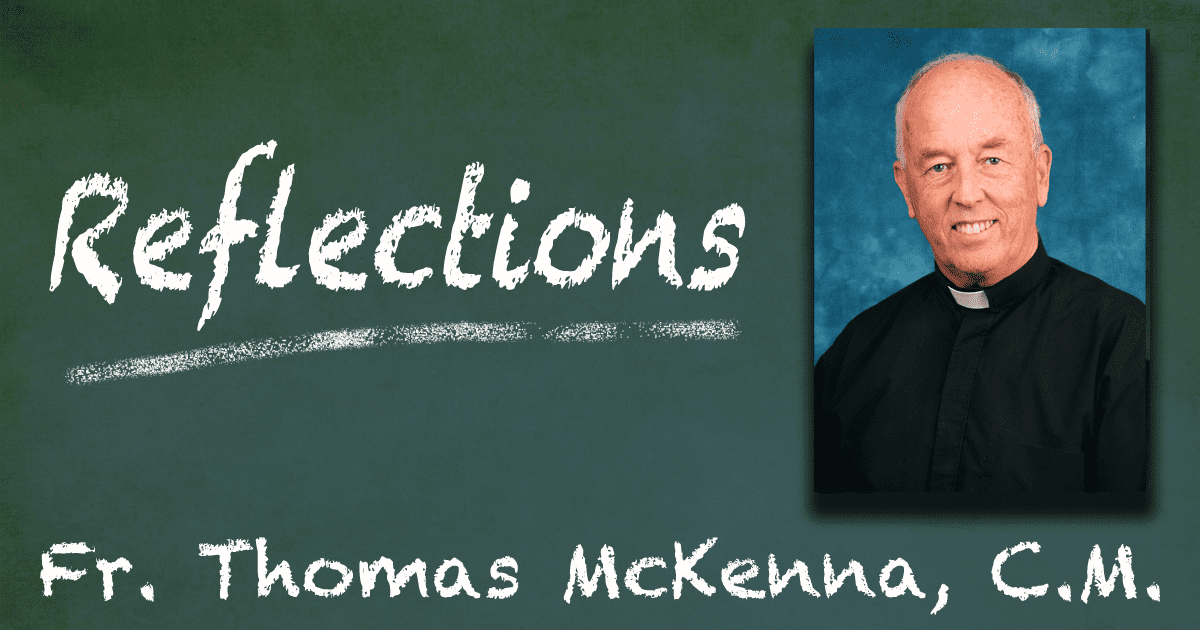We Remember, We Celebrate, We Believe
All of us have heard the phrase, “living in the past.” Usually it has a negative ring – – somebody missing out on the good things happening now because he or she lives on memories of a bygone day. However, there’s an opposite type of remembrance, a recollecting that injects drive and vigor into the present day. These are memories of former times that overflow into energy that spills out into the here and now.
An example might be a 50th wedding anniversary party. Clearly it looks back half a century, but the way in which the people are remembering it has transferred into vitality for the present, the festive celebrating of this hallmark event.
This positive kind of remembering figures prominently in our life of faith. A good instance appears in the story of the Hebrew people when they were taken captive and dragged into exile in Babylon. What was it that kept them alive and together over their decades-long enslavement? It was their memory of Jerusalem, their bringing-to-mind and heart their encounters with Yahweh in that far off and long- ago city.
More than reminiscing about the good old days, their recall supplies the resilience and hope to survive their imprisonment. The life-and-death necessity of drawing from that memory comes through in their passionate lament, “If I forget you, Jerusalem, may my right hand be forgotten. If I don’t keep remembering you, Jerusalem, may my tongue stick to the roof of my mouth. And most striking of all, “If I don’t put you, Jerusalem, higher up on the list than even my happiness, let my tongue be silenced.” (paraphrase of Ps 137). Their remembering has as much to do with life in the present (and the future too) as it does with anything in the past. For the displaced Jews, this kind of recollection delivers purpose and reason to hope.
In another connection, St. Vincent in his advice to a Sister to return to her retreat resolutions also appeals to the way in which past nourishment can flow into present circumstances. “Those were thoughts that came to us when we were dealing with God most familiarly… It is well for us to gather them together that we may make use of them in time of (present) need. (SV IX:282)
We Christians recognize this very thing happening as we share in the Eucharist, our “memorial plus,” the reenacting of Jesus’ love for us on Calvary. Saying “this is my body, this is my blood,” transports that saving action of 2000 years ago right into the present. This is remembering as overflow – mercy and power and love from the past, now streaming into today and opening out to the future.
The words of Consecration end with Jesus’ “Do this in memory of me,” clearly a remembering that brings past into present. Playing off that verse made famous in today’s ballparks (John 3:16: Read it!) it is not God so loved the world, but that God soloves the world — God, right now, giving and continuing to give that love through every age.
Poetry oftentimes does a better job conveying the deeper things. A modern-day hymn lyric does just that.
“We remember how you loved us, til your death.
And still we celebrate for you are with us here.
And we believe that we will see you, when you come, in your glory Lord.
We remember, we celebrate, we believe!”
Also do the words of Rainer Maria Rilke about a poet’s inspiration echo this truth.
“For it is not yet the memories themselves. Not until they have turned to blood within us, to glance and gesture, nameless and no longer to be distinguished from ourselves…can it happen that the first word of a verse (poem) arises and goes forth from them.” (Cited in Naming Grace, by Mary Catherine Hilkert, p. 51)
Memories celebrated — and come to life!







0 Comments